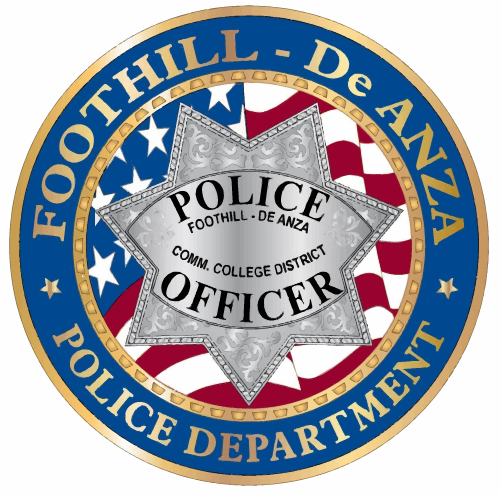POLICE AUTHORITY
Law Enforcement Authority of Foothill-De Anza POLICE officers
The Foothill-De Anza Police Department is a full-service law enforcement agency employing police officers whose law enforcement authority is granted under Section 830.32 of the California Penal Code. The authority of these officers extends anywhere within the State of California.
California Penal Code 830.32
The following persons are peace officers whose authority extends to any place in the state for the purposes of performing their primary duty or when making an arrest pursuant to Section 836 as to any public offense with respect to which there is immediate danger to person or property, or of the escape of the perpetrator of that offense, or pursuant to Section 8597 or 8598 of the Government Code. Those peace officers may carry firearms only if authorized and under terms and conditions specified by their employing agency.
(a) Members of a Community College Police Department appointed pursuant to Section 72330 of the Education Code. The primary duty of the Police Officer is the enforcement of the law as prescribed in Section 72330 of the Education Code.
California Education Code Section 72330
(a) The governing board of a community college district may establish a community college police department under the supervision of a community college chief of police and, in accordance with Chapter 4 (commencing with Section 88000) of Part 51, may employ personnel as necessary to enforce the law on or near the campus of the community college and on or near other grounds or properties owned, operated, controlled, or administered by the community college or by the state acting on behalf of the community college. Each campus of a multi-campus community college district may designate a chief of police.
(b) Persons employed and compensated as members of a community college police department, when so appointed and duly sworn, are peace officers as defined in Chapter 4.5 (commencing with Section 830) of Title 3 of Part 2 of the Penal Code.

